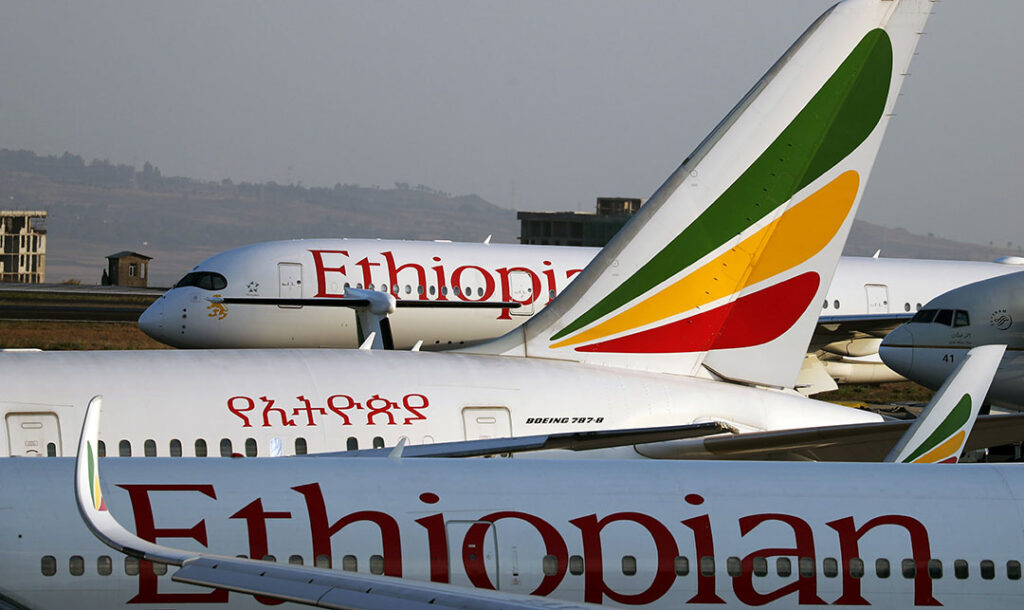ADF STAFF
Ethiopia and the United Nations have opened a humanitarian transport hub at Addis Ababa airport to move supplies and aid workers across Africa to fight COVID-19.
The arrangement, which includes the World Health Organization (WHO), relies on cargo services provided by Ethiopian Airlines. It also could partially offset heavy losses that Africa’s largest carrier is sustaining because of the pandemic, Agence France-Presse reported.
An initial shipment of 3,000 cubic meters of supplies — most of it personal protective equipment for health workers — will be distributed within the next week, said Steven Were Omamo, Ethiopia country director for the World Food Programme (WFP).
“This is a really important platform in the response to COVID-19, because what it does is it allows us to move with speed and efficiency to respond to the needs as they are unfolding,” Omamo said.
Onboard the Ethiopian Airlines charter are 1 million face masks, gloves, goggles, ventilators and other essentials, according to the United Nations.
“We have seen time and again our health workers fall victim to infectious diseases as they work in hospitals and sometimes pass away,” said Matshidiso Moeti, the WHO’s regional director for Africa. “This is unacceptable. This personal protective equipment will help keep them safe. WHO is committed to protecting those on the front lines of health care.”
There is enough equipment to protect health workers while they treat more than 30,000 patients across the continent, WFPspokeswoman Elisabeth Byrs said.
“This is by far the largest single shipment of supplies since the start of the pandemic, and it will ensure that people living in countries with some of the weakest health systems are able to get tested and treated, while ensuring that health workers on the front lines are properly protected,” Byrs said.
The Addis gateway is one of eight global humanitarian hubs set up to facilitate movement of aid to fight COVID-19, according to WFP. In Africa, there also are hubs in Ghana and South Africa.
Africa has not been hit by COVID-19 as hard as other regions, but experts worry that an influx of cases could overwhelm health systems. As of April 14 there were 15,249 confirmed COVID-19 cases across the continent resulting in 816 deaths, according to the Africa Centres for Disease Control and Prevention.
Leaders also are worried about the economic toll on the continent.
An African Union study warned that 20 million jobs in the formal and informal sectors were at risk.
Ethiopian Airlines announced that it is bracing for revenue losses of $550 million between January and April, AFP reported. To soften the impact, the airline has turned to cargo, maintenance and charter operations.
Still, Ethiopian Airlines wants to play “a major role” in Africa’s fight against COVID-19, and the humanitarian transportation hub will operate at least through the end of May, said Fitsum Abadi, the company’s managing director of cargo and logistics services.
But Fitsum acknowledged that cargo operations would never make up for the loss of most of the airline’s passenger traffic.
“This division or this business unit is the second-largest revenue-generating business unit, but it cannot offset the entire loss that the airline is facing,” he told AFP. “So we are helping the airline to navigate this difficult time — not as healthy as we wanted but in a healthy situation.”

